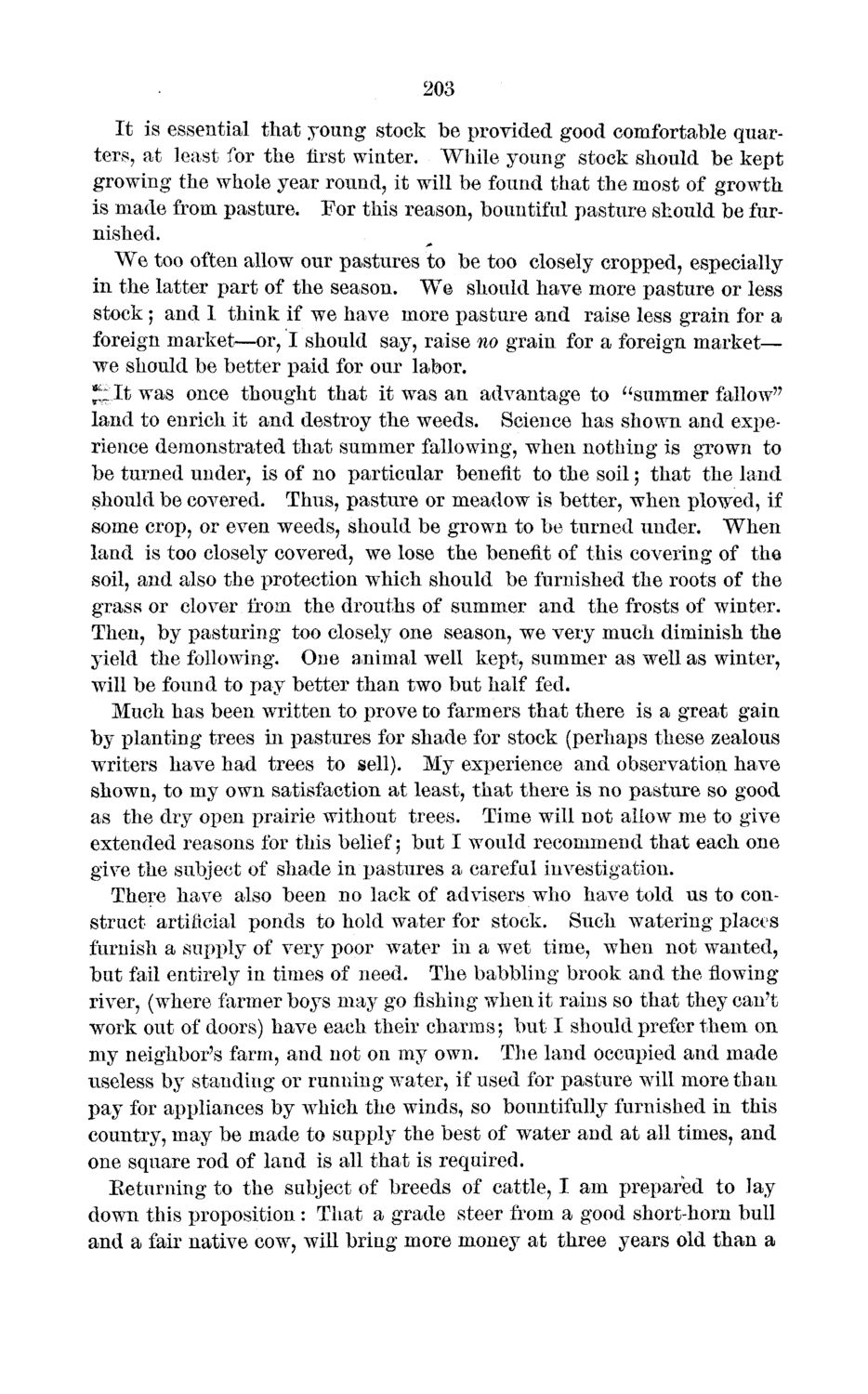| |
| |
Caption: Board of Trustees Minutes - 1873
This is a reduced-resolution page image for fast online browsing.

EXTRACTED TEXT FROM PAGE:
203 It is essential that young stock be provided good comfortable quarters, at least for the first winter. While young stock should be kept growing the whole year round, it will be found that the most of growth is made from pasture. For this reason, bountiful pasture should be furnished. We too often allow our pastures to be too closely cropped, especially in the latter part of the season. We should have more pasture or less stock; and 1 think if we have more pasture and raise less grain for a foreign market—or, I should say, raise no grain for a foreign market— we should be better paid for our labor. JJlIt was once thought that it was an advantage to "summer fallow77 land to enrich it and destroy the weeds. Science has shown and experience demonstrated that summer fallowing, when nothing is grown to be turned under, is of no particular benefit to the soil $ that the land should be covered. Thus, pasture or meadow is better, when plowed, if some crop, or even weeds, should be grown to be turned under. When land is too closely covered, we lose the benefit of this covering of the soil, and also the protection which should be furnished the roots of the grass or clover from the drouths of summer and the frosts of winter. Then, by pasturing too closely one season, we very much diminish the yield the following. One animal well kept, summer as well as winter, will be found to pay better than two but half fed. Much has been written to prove to farmers that there is a great gain by planting trees in pastures for shade for stock (perhaps these zealous writers have had trees to sell). My experience and observation have shown, to my own satisfaction at least, that there is no pasture so good as the dry open prairie without trees. Time will not allow me to give extended reasons for this belief; but I would recommend that each one give the subject of shade in pastures a careful investigation. There have also been no lack of advisers who have told us to construct artificial ponds to hold water for stock. Such watering places furnish a supply of very poor water in a wet time, when not wanted, but fail entirely in times of need. The babbling brook and the flowing river, (where farmer boys may go fishing when it rains so that they can't work out of doors) have each their charms; but I should prefer them on my neighbor's farm, and not on my own. The land occupied and made useless by standing or running water, if used for pasture will more than pay for appliances by which the winds, so bountifully furnished in this country, may be made to supply the best of water and at all times, and one square rod of land is all that is required. Eeturning to the subject of breeds of cattle, I am prepared to lay down this proposition : That a grade steer from a good short-horn bull and a fair native cow, will bring more money at three years old than a
| |